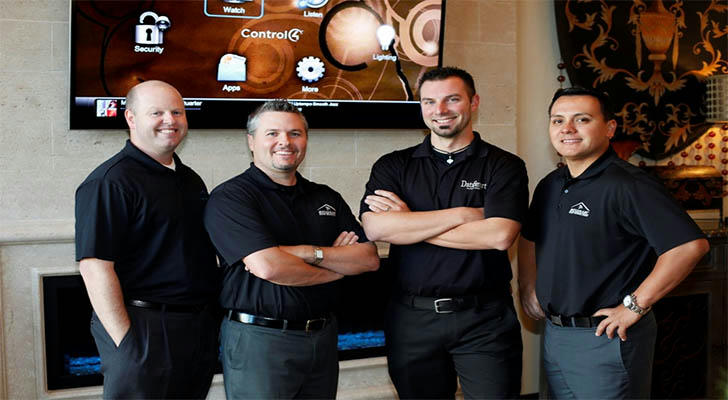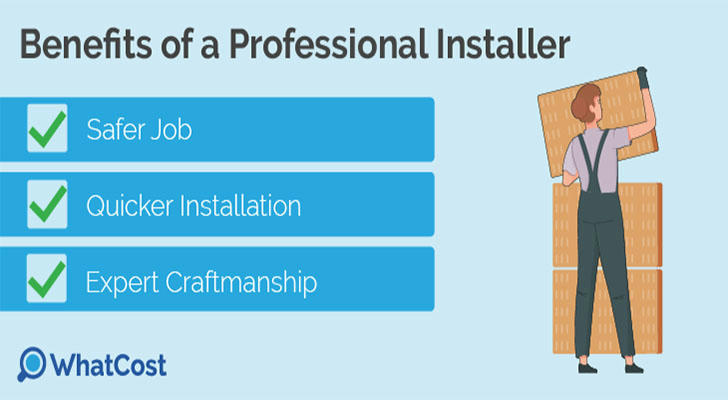You Can Enter the Industry Even If You Have No Basic Knowledge! A Guide to Getting Started as an Installer

Introduction: A Practical Career Path That’s Open to All
In an era where many jobs demand advanced degrees or specialized experience, the installer profession stands out as a practical, skill-based path accessible to beginners. Whether working on HVAC systems, solar panels, home appliances, or telecommunications, installers are in growing demand across industries.
You don’t need a background in engineering or construction to begin. What you do need is a willingness to learn, basic physical ability, and the right direction to get started. This guide will show you how.
The Demand: A Growing Industry with Real Opportunity
Installers play a key role in modern infrastructure — setting up systems that power, heat, connect, and secure homes and businesses. The U.S. Bureau of Labor Statistics projects that installation and repair occupations will grow 5% between 2022 and 2032, creating more than 750,000 new jobs.
Industries driving this growth include:
• Renewable energy (solar, EV charging)
• Smart home technologies
• Internet and cable installations
• Residential and commercial HVAC systems
As technology becomes more integrated into daily life, skilled installers are needed to ensure these systems are installed safely and correctly.
Who Can Become an Installer? More People Than You Might Think
This field is accessible to individuals from all backgrounds, including those without technical education or prior experience. Many successful installers started with no industry knowledge — learning through short courses, apprenticeships, or on-the-job training.
Basic entry requirements typically include:
• A high school diploma or GED
• Physical ability to lift, climb, and work on-site
• Comfort using basic tools and following instructions
• Strong communication and customer service skills
You don't need to be a “tech person” to begin. What matters is your reliability, work ethic, and commitment to learning.

Step 1: Choose a Specialization That Matches Your Interests
The installation industry includes a variety of specializations. Picking one helps you focus your training and job search.
Here are a few examples:
• HVAC Installer: Heating and cooling systems
• Solar Installer: Renewable energy systems on rooftops or commercial buildings
• Appliance Installer: Kitchen and laundry appliances
• Security System Installer: Cameras, alarms, and access systems
• Cable/Internet Installer: Residential or business network setups
Each role has unique tools, techniques, and certifications, but the basic skillset is similar.
Step 2: Build Foundational Skills Through Training
While prior experience isn’t required, basic training makes a big difference. It builds confidence and prepares you for safety standards, equipment handling, and customer interactions.
Training options include:
• Community colleges
• Trade schools
• Adult education centers
• Employer-run programs
Courses may last from a few weeks to several months and usually cover:
• Tool usage and installation methods
• Safety protocols (including OSHA standards)
• Equipment or system-specific techniques
• Reading plans, diagrams, or instructions
This foundational knowledge gives you a head start and makes you more attractive to employers.
Step 3: Earn Certifications That Boost Your Credibility
Certain certifications can open doors, even at entry level. They show employers that you’re prepared and serious.
Here are commonly recognized credentials:
• OSHA 10/30 Certification – Safety and hazard awareness
• EPA Section 608 Certification – Required for HVAC technicians handling refrigerants
• NABCEP Associate Certification – Solar energy industry credential
• **CompTIA Network+ **– Beneficial for network/smart home installation
These can often be completed alongside or after your initial training.
Step 4: Apply for Entry-Level Positions or Apprenticeships
After gaining foundational skills and certifications, start looking for entry-level roles such as:
• Installer assistant
• Trainee technician
• Apprentice installer
Many employers provide additional hands-on training as part of these roles. Apprenticeships are particularly valuable, allowing you to earn while you learn under experienced professionals.
Step 5: Grow With Experience — Build a Career, Not Just a Job
As you gain field experience, your skills, speed, and confidence improve — and so do your career opportunities.
A typical career progression might look like:
• Year 1–2: Entry-level assistant or junior technician
• Year 3–5: Lead installer or certified technician
• Beyond Year 5: Supervisor, estimator, or independent contractor
According to the BLS, experienced installers often earn between $50,000 and $75,000 annually, with some specializations exceeding that — particularly in high-demand regions or technical fields like renewable energy.

What Makes a Great Installer? More Than Just Technical Skills
Success in this field doesn’t rely only on knowing how to install a device. Employers and clients also value:
• Problem-solving: Every job site is different; thinking on your feet is key.
• Time management: Scheduling, efficiency, and preparation matter.
• Customer service: Installers often represent the company during home or site visits.
• Attention to detail: Accurate installation prevents safety issues and callbacks.
These qualities can set you apart and accelerate your advancement in the field.
Conclusion: A Strong Career Foundation Starts Here
Starting a career as an installer is not only possible without a background in the field — it’s common. With accessible training, growing job demand, and a clear path for progression, this profession offers real-world stability and long-term potential.
If you’re looking for a career that rewards skill, hands-on work, and dependability, installation work may be the right fit. Take the first step — choose your focus, start training, and begin building a career from the ground up.
